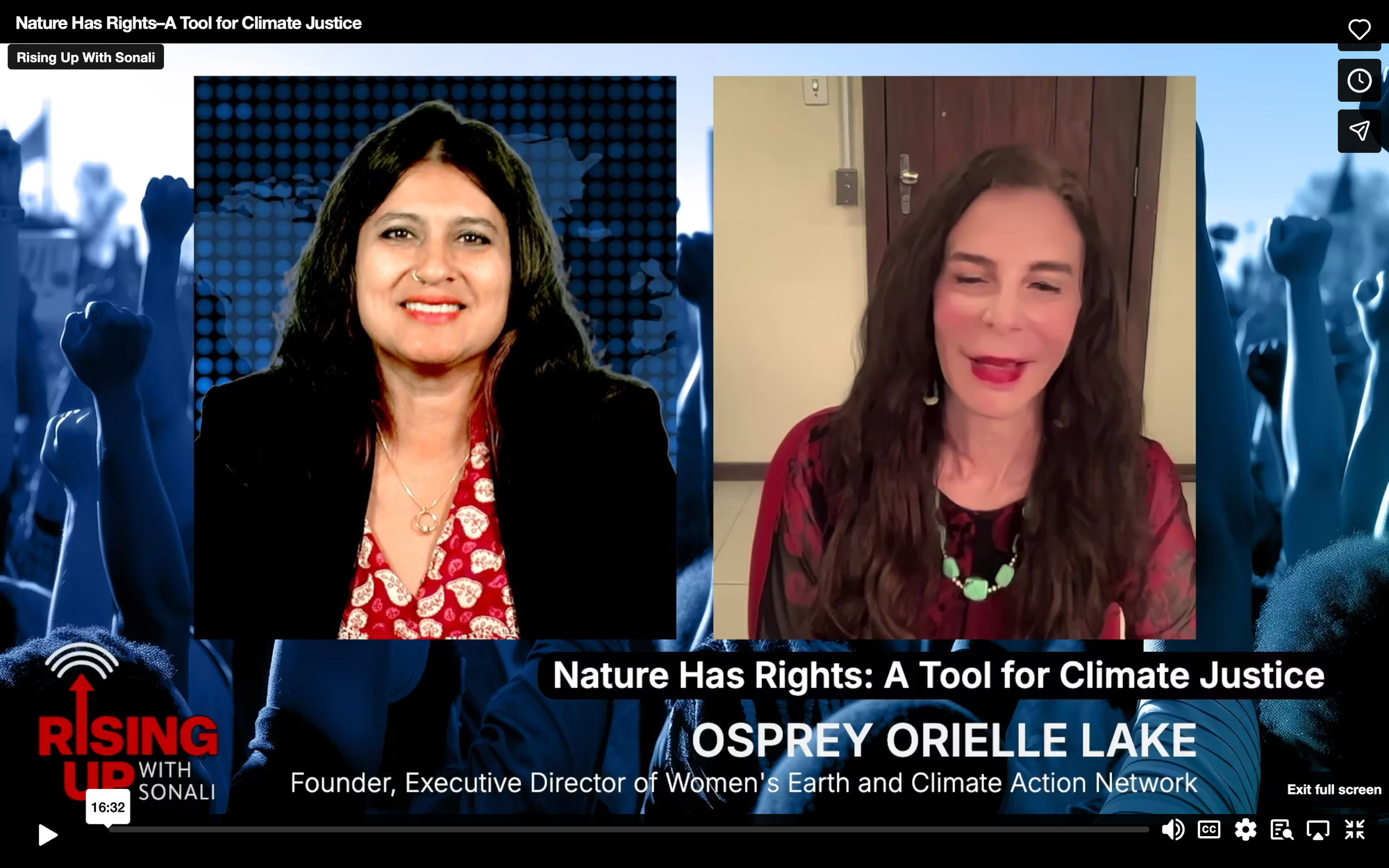FEATURING OSPREY ORIELLE LAKE - The latest United Nations climate conference, COP30, is taking place in Belem, Brazil where nations are still attempting, after decades, to comprehensively tackle climate change and its impacts head on.
While much mainstream American discourse on climate justice is centered on preserving humanity and human lives, a new brief by the Women’s Earth and Climate Action Network (WECAN) brings to the forefront a critically important tool for climate justice: the rights of nature, an all-encompassing legal approach to preserving all life.
Osprey Orielle Lake is the Founder and Executive Director of the Women's Earth and Climate Action Network (WECAN). She sits on the Executive Committee for the Global Alliance for the Rights of Nature (GARN) and spoke with Sonali Kolhatkar about WECAN's new report.
ROUGH TRANSCRIPT:
Sonali Kolhatkar: The place that I have heard the rights of nature really come up. and, you know, and I think folks who are engaged in the climate justice movement know of Ecuador's case in 2008, I believe it was, that Ecuador essentially changed its Constitution to encompass, to uphold and to preserve the rights of nature.
Using that, using Ecuador as an example, how do you explain what it means when you say the rights of nature?
Osprey Orielle Lake: Well, it's really an important country where rights of nature, as you said, put in 2008 rights of nature to the Constitution. And it's been a growing movement for many years. in the seventies, there was a professor Christopher Stone who put out a document called “If Trees Had Standing,” which in essence basically said, could we have a form of jurisprudence, a way of law that recognized that the natural world could have its own rights?
And it's a really important activity, philosophy, and action for the climate justice movement because, right now, nature does not have standing in a court of law. And so, in the new systems that we have since colonialism, people own property. And so, you have to have the property owner represent a river or a mountain or a forest.
And what rights of nature laws do is they really turn this inside out and upside down, and say, no, we actually are living in a time in which the rivers and the mountains and all of the animals need their own rights to be represented and have their own voice in court of law.

